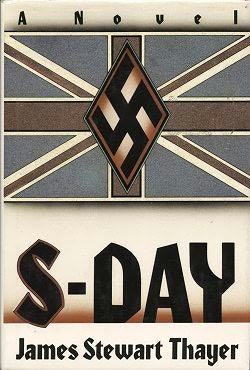Comments: This is a different story than the one you learned in school. That much becomes evident quickly, as the plot unfolds in late 1942. The Luftwaffe owns the skies over Britain, having destroyed most of the RAF. The German navy dominates the Atlantic Ocean, sinking the Queen Mary with 10,000 American reinforcements on board. And all of England waits as the German army masses along the French and Belgian coasts for the inevitable invasion. Not so good.
The story follows the general in charge of the American forces in England during the time leading up to the German invasion, and the days immediately following it. The narrative is provided by the general's aide, who is supposedly documenting the story for posterity, drawing from his own notes and his interviews with survivors from both sides. Ultimately, it's a character study of the general, and that's what makes it interesting.
The general's job is more than just to motivate and direct his troops. He also needs to figure out and respond to the German invasion plan, which is artfully hidden behind layers of ruse and deception. And, he must work in constant cooperation with the British military, some of whom still seem cranky about the American revolution.
The only other thing I'll say is that the invasion eventually does come, and the Germans take the beaches quickly and begin advancing towards London. But you're also aware that something's going to change, otherwise the narrator wouldn't be writing as a free man, and from a British/American point of view. Also, why does he keep referring to the general in past tense?
I'm not usually big on war stories, but Thayer is my favorite fiction author, and this well-crafted yarn is a good example of the reason why.



